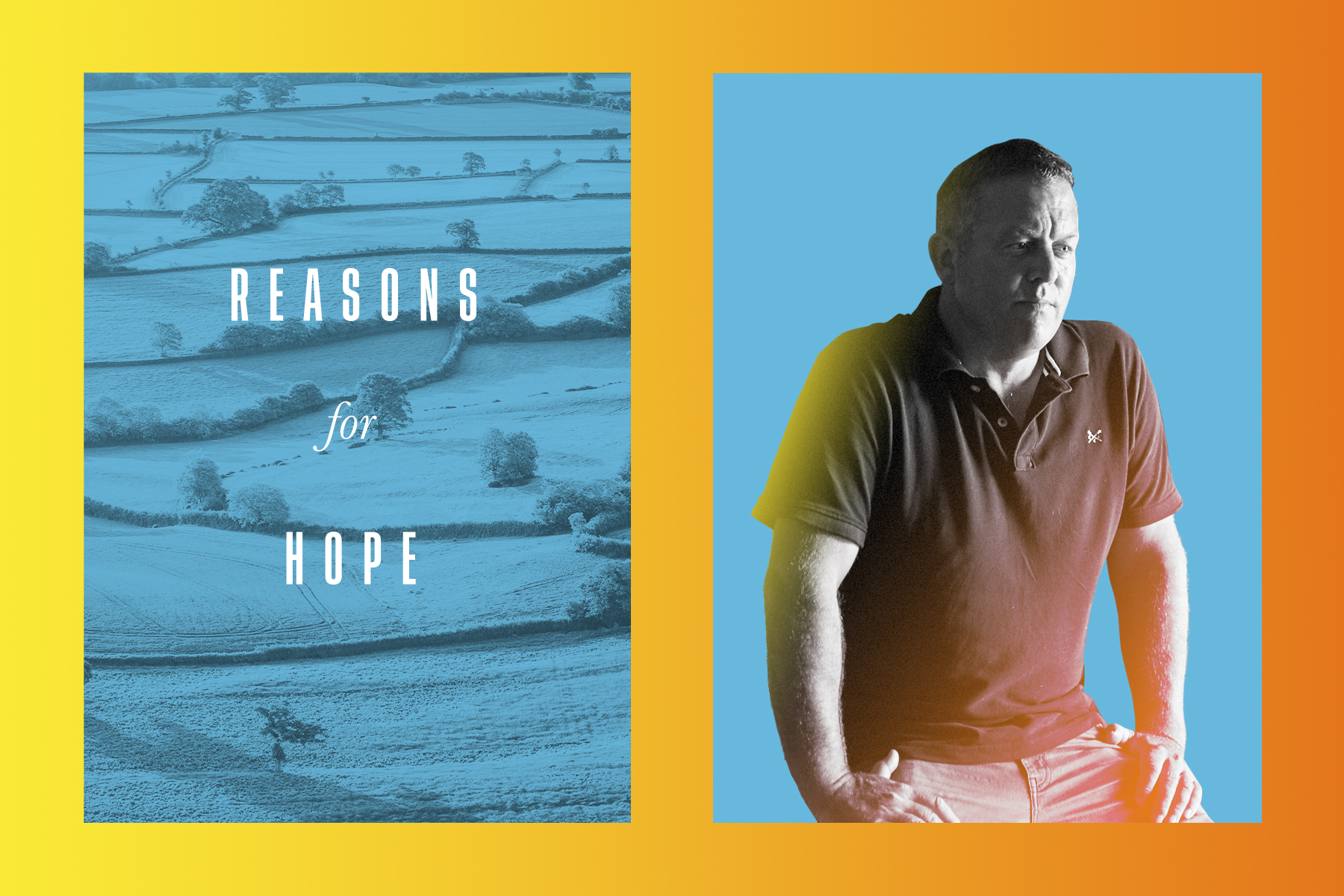
- Home |
- Search Results |
- James Rebanks: Let’s transform the way we think about food
James Rebanks: Let’s transform the way we think about food
A year of eating at home has given us the passion and tools we need to revolutionise how we eat, believes the author of English Pastoral.
Iam a fairly optimistic person, but even I have days when I struggle. We all know the world is heating up, there are too many humans, and way too many of the existing humans are selfish a**holes. But it has always seemed to me that either life is pointless, or it is full of hope, and you should learn to smile and get on with it even when the clouds gather.
My last book, English Pastoral, told the story of how we screwed up rural England, and how on our own tiny bit of it, our little farm, we are trying to make it better. Today was fairly typical in that I got a clutch of letters from farmers and readers to say how much they agree that we have taken a series of wrong turns. There is now a groundswell of interest and enthusiasm to rethink farming in Britain, to try and find the best balance between the complex mix of things we need from the land. Farmers don’t want to be the bad guys and girls, they want to be respected for being good custodians of the land.
'We have woken people up to how precarious our globalised, over-specialised way of life is'
Covid-19 has been a horrible moment, killing a great many people, and ruining many other lives or putting them on hold. But I sense that this strange experience has also done some useful things too. I hope it has woken people up to how precarious our globalised, over-specialised and industrial way of life is – and how vulnerable our food supply is to shocks and disruption. Those bare shelves and buying panics of last March were the first time in many of our lives when we had even the slightest sense of scarcity or worry about where next week’s food was coming from. And we haven’t been thinking about that nearly enough.
Right now, because we’ve been forced to cook and eat at home, demand for vegetable boxes and good British meat – the things we produce on our land – is off the scale. But the truth is that very few people were paying any attention to what was in the food they were eating before lockdown – the takeaway grabbed after work on the way home, the sandwich from the deli place, the ready meal shoved in the microwave between the school run and taking the kids to after school sports.
Our food system involved way too much trusting other people to make our meals, and they (and it was usually a corporate ‘they’) regularly abused that trust by using ingredients from farming systems that we probably wouldn’t approve of if we saw them ourselves. Meat from cleared rainforests in Brazil or fed here on soy from the same place. Chicken or pork from horrible industrial factory-farms. Crops from sterile monocultures doused in pesticides and insecticides. Vegetables from greenhouses in Spain staffed with illegal immigrant workers who are little more than slaves. When we stopped paying attention and asked for food to be endlessly cheaper, and ever more convenient, they gave us that like a magician’s trick, with the ugly truths kept out of sight by a sleight of hand.
'We were in a perfect loop of irresponsibility'
The truth is we all have a field somewhere (actually loads of different fields all around the world) with our name on it. What we buy, where from, what we pay, and how we cook and eat affect that field and play out as massive world-shaping forces – clearing Indonesia of orangutang habitat to grow our palm oil, stripping our landscapes of hedgerows and trees, confining pigs to horrid giant factory buildings in Iowa or Denmark. They did it, but only because we let them – and they say they simply did what they had to do to give us what we demanded, a perfect loop of irresponsibility. Yes, they don’t encourage us to know about that stuff, or to see the realities, but it is our moral responsibility to know, and to see, and to demand change, even if that costs more and changes the way we live.
Woody Guthrie, the American folk singer once sang, ‘this land is our land’ and he was right. It is time to talk about farming and food, and time to reconnect what happens in our shopping trolleys and in our kitchens with what happens on the land. I believe that we can make things much better, by caring, and acting in our millions. That’s what gives me hope, that people can, when they choose to, to quote Shelley, ‘rise like lions after slumber, in unvanquishable number, shake your chains to earth like dew, we are many, they are few’.
What did you think of this article? Let us know at editor@penguinrandomhouse.co.uk.
James Rebanks is the author of English Pastoral and The Shepherd's Life.
Reasons for Hope is a series of essays to mark the one year anniversary of the Covid-19 crisis. The author's fee for this article is being donated to the National Literacy Trust. Read more of the essays here.
Image: Alicia Fernandes / Penguin. Photograph: Stuart Simpson/Penguin.